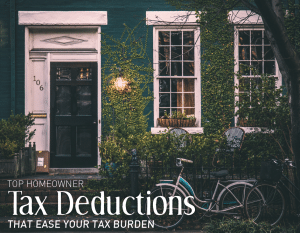
Weather and the time of year have a big impact housing activity, and in every housing market there are times of the year when fewer homes sell. For most, that time of year coincides with the winter months, and in much of the U.S., that’s the case right now.
But no matter where you live, it’s important to know how seasonality affects the housing market. So let’s look at the current housing numbers, how seasonality affects them, and what it means for you if you’re looking to buy or sell.
With few homes available, sellers are in pole position
Last year, limited inventory dominated the headlines for the real estate industry, and that trend looks to continue this year. According to the National Association of Realtors (NAR), inventory dropped 12.3 percent from November to December, falling to 3.8 percent lower than December 2014. That equated to just a 3.9-month supply of homes.
Generally speaking, a 6-month supply of homes (meaning it would take six months at the current sales pace to sell all the homes on the market) represents a balanced market, one in which there are enough homes to meet demand. For much of 2015, inventory remained well below a 6-month supply, and will likely remain so for 2016.
Why is inventory so constrained? Part of the sharp drop in December is due to the seasonal slow down in many states. Cold weather and holidays keep many buyers out of the market and many sellers waiting for demand to pick back up. Additionally, new home construction came to a standstill when the housing market crashed, so there are fewer new homes available. Existing home inventory is low as well. A combination of factors, such as locked-in low interest rates and a sense that home prices will continue to increase, are keeping current homeowners from listing their homes.
If you’re thinking of selling, this market is very much a seller’s market. When inventory is scarce, buyers are forced to compete over the few homes for sale. Homes are selling faster, and in many markets bidding wars drive home prices up well above asking. At the very least, you’ll be in a strong negotiating position.
Economic Conditions and Home Affordability Continue to Sideline Buyers
For buyers, the market is tough, and the low number of first-time buyers illustrates just how tough it is. In a separate study conducted by NAR, first-time homebuyers in 2015 made up the lowest share of the market in nearly three decades.
Many factors are keeping first-time home buyers sidelined. Despite a strengthening economy and job growth, wages have remained relatively stagnant. At the same time, rent prices have skyrocketed and continue to rise. Combined, these factors are preventing millennials from saving enough for a significant down payment.
At the same time, home affordability continues to suffer. Home prices have risen quickly over the last three and half years, again outpacing wage and job growth. Prices are expected to rise more modestly this year, somewhere around 4 to 5 percent.
These factors combined with limited inventory are making it difficult for buyers to find the home they want at a price they can afford. However, if you’re thinking of buying, it is important to start looking sooner rather than later…
Mortgage Rates & Increasing Finance Accessibility
In February, mortgage rates remain near record lows. According to Freddie Mac’s Mortgage Survey, the average mortgage rate for a 30-yr FRM was just 3.65%. Despite tough market conditions, these rates present an excellent opportunity if you’re thinking of buying.
In a piece of good news for buyers, it should be easier to get financing in 2016. Fannie Mae’s fourth quarter 2015 Mortgage Lender Sentiment Survey™ shows that lenders expect to ease mortgage credit standards for GSE-eligible loans and government loans over the next three months, opening the door for more buyers to get financing.
If You’re Thinking of Buying, Act Sooner Rather Than Later
If you’re thinking of buying a home, it’s important to act sooner rather than later. As the year goes on, affordability will continue to suffer. With home prices expected to increased around 4 to 5 percent this year and mortgage rates expected to rise to around 4.5 percent, the longer you wait to buy, the less home you’ll be able to afford. Even small increases in mortgage rates and home prices can have a large impact on your future monthly mortgage payment!


